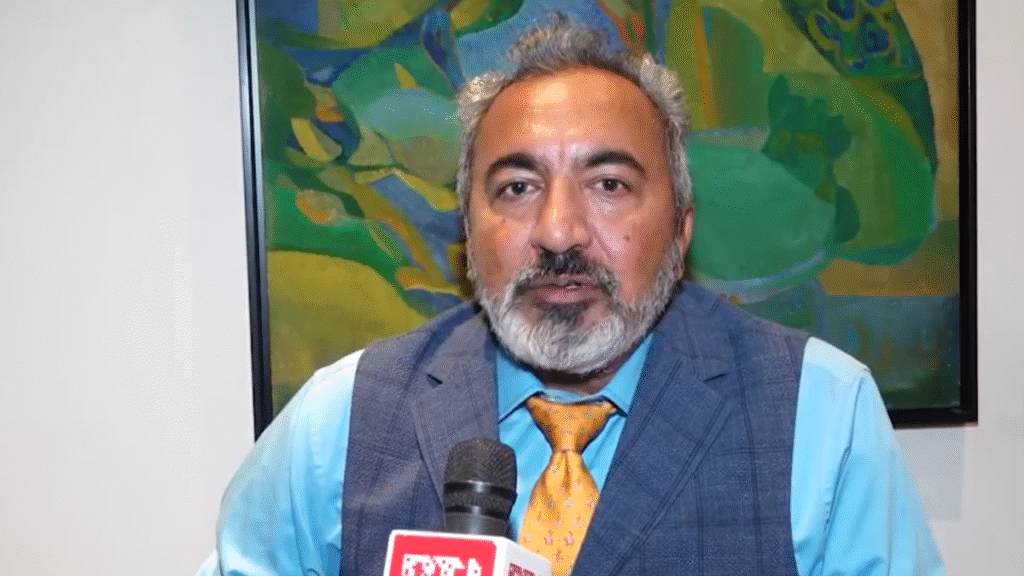Slamming the U.S. government’s new $100,000 H-1B visa fee as a “poorly thought through policy”, U.S. Democrat lawmaker Ami Bera said that both the U.S. Congress and American officials had been caught by surprise by the decision announced on Friday (September 19, 2025) by U.S. President Donald Trump.
Mr. Bera, who is part of a five-member U.S. Congressional delegation invited by the Ministry of External Affairs for a week-long visit to Delhi and Mumbai, said he would discuss the issue during the visit, and relay some of the concerns expressed to Washington. During the visit, the delegation will meet with MEA and Commerce Ministry officials as well as business and industry leaders.
The U.S. Congressional delegation’s visit to India comes just as External Affairs Minister S. Jaishankar and Commerce and Industries Minister Piyush Goyal head to the U.S. this week for talks with their counterparts on repairing the relationship and concluding trade negotiations that had been suspended for weeks.
Speaking to The Hindu, Mr. Bera expressed the hope that Prime Minister Narendra Modi would also travel to the U.S. and meet with Mr. Trump directly to take ties forward. However, MEA officials did not confirm any such travel by Mr. Modi. Mr. Bera added that, in Washington, “all indications” were that Mr. Trump intends to travel to India for the Quad Leader’s Summit later this year.
‘May have opposite effect’
“I think this was a poorly thought through policy… Much lower fees of $1,000 to $4,000 were much more appropriate,” Mr. Bera said, when asked about the executive order passed by Mr. Trump that imposes a $100,000 fee per H-1B visa on U.S. companies that use it to hire non-Americans. About 71% of H-1B visas are granted to Indians at present, and they are likely to be the worst hit by the rule.
“I think this is going to hurt American tech companies, and in fact, it may have the opposite effect — instead of creating American jobs, a tech company might say, ‘Let me just expand my presence in Hyderabad or Bangalore’, said Mr. Bera, an Indian-American politician who has represented the 6th Congressional District in California since 2013, and is a member of the U.S. House Foreign Affairs Committee.
Strained ties
The invitation to the delegation led by Mr. Bera is part of the Modi government’s outreach to American lawmakers amidst a number of setbacks to the India-U.S. relationship. Over the past few months, ties have been strained in several spheres, from Mr. Trump’s decision to impose 50% tariffs on Indian goods, including penalties on India’s import of Russian oil and threats of 100% on all BRICS members; his repeated claim that he mediated the India-Pakistan ceasefire, that India denied; the U.S.’s treatment of Indian deportees; its crackdown on visas issued, and cancellation of student visas; as well as the latest round of sanctions planned for those engaged in Iran’s Chabahar port project.

In addition, U.S. Congressmen close to the U.S. President have introduced a number of legislations, proposing “500% tariffs” on all countries that buy Russian oil and engage with it economically, and the India Shrimp Act, which proposes to levy 10% to 40% more tariffs on Indian shrimp exports to the U.S.
“Certainly in the 12 years that I’ve been in Congress, this is probably a low point,” Mr. Bera acknowledged, but insisted that members of the U.S. Congress all “recognise the importance of the India relationship”.
Racism in the MAGA-verse
Expressing surprise at the downturn in ties, he said that both lawmakers and industry leaders should “step up” and speak to the U.S. President regarding their concerns about policies like the H-1B visa fee that are hurting the relationship. Much of the blame lies with Mr. Trump’s advisors, such as White House Trade Counsellor Peter Navarro and Commerce Secretary Howard Lutnick, who had not served in the administration before, he suggested, noting that the administration has already needed to roll back some of the measures announced on Friday.
In addition, Mr. Bera pointed to racism in the “MAGA-verse” or amongst Trump supporters, but said that this did not pertain to most Americans.
“I don’t know that it’s just targeted against Indian Americans, because you see it in targeting of other ethnic minorities as well. In the long term 21st Century, we all desire for our children, our grandchildren, peace and prosperity. I would say all of us see India as a major part of this strategy,” he added.
Published – September 21, 2025 09:50 pm IST

